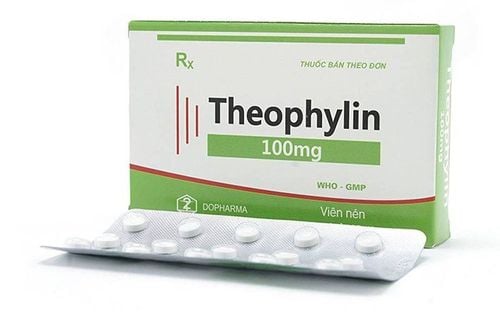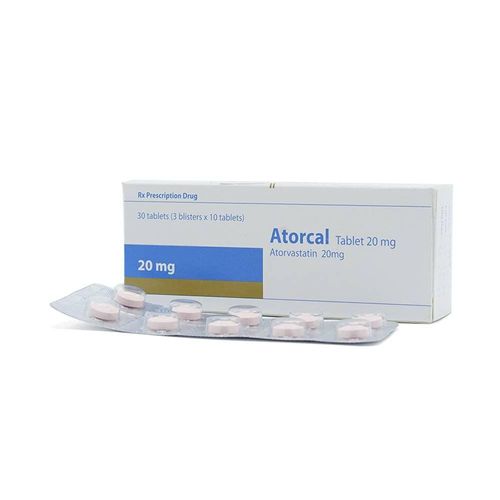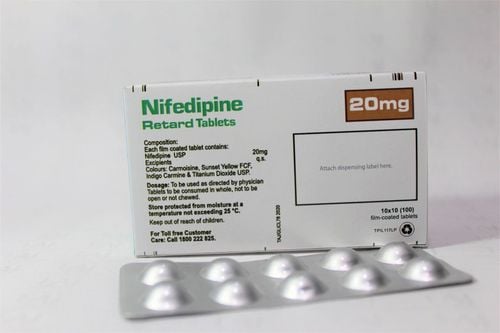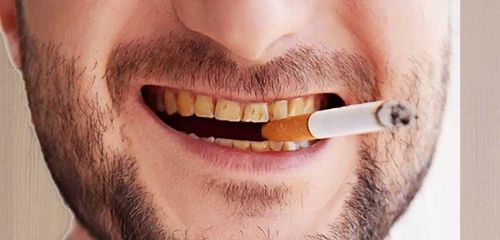This is an automatically translated article.
In Vietnam, lung cancer ranks first among the 10 most common cancers in both men and women. The leading cause of lung cancer is the habit of smoking.1. Harm of cigarette smoke
Tobacco smoke causes about 25 diseases, including many dangerous diseases such as cancer, cardiovascular disease, respiratory disease and affects reproductive health. Specifically:Secondhand smoke seriously affects the health of pregnant women and their unborn children, causing lung cancer, emphysema, hair loss and cataracts. Tobacco causes 90% of lung cancer cases, 75% of chronic obstructive pulmonary disease cases and 25% of ischemic heart disease cases. Not only smokers are at risk, but passive smokers are equally affected. Passive smoking is inhalation (also known as exposure) to secondhand smoke, which causes many dangerous diseases in both adults and children. In adults, secondhand smoke causes lung cancer, breast cancer, cardiovascular diseases, coronary artery disease, atherosclerosis, and premature birth. In children, secondhand smoke exposure increases the risk of respiratory tract infections, otitis media, asthma, poor lung function, etc.
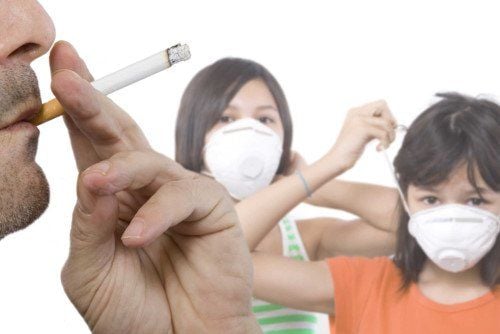
Người hút thuốc lá thụ động chịu ảnh hưởng vô cùng nặng nề từ khói thuốc
2. How does smoking habit cause lung cancer?
Normally, when we breathe, air enters the upper respiratory tract through the nose and mouth, where the air is filtered, warmed and humidified, and then through the trachea to the lungs. When smoke enters the mouth, the smoker has bypassed the first defense mechanism, which is the filtering process in the nose, so it will put more toxins into the body.Smokers often excrete more sputum than non-smokers, and the ability to clear sputum out of the respiratory tract is also worse because the ciliary system in smokers is paralyzed or even destroyed. In addition, smoking changes the structure of the mucous glands as well as the composition of the mucus. Sometimes, the mucus-secreting glands become blocked, reducing a smoker's ability to excrete phlegm. The main consequence is that the mucus is contaminated with many toxic substances from the smoke, which is trapped in the lungs and interferes with the circulation of air exchange.
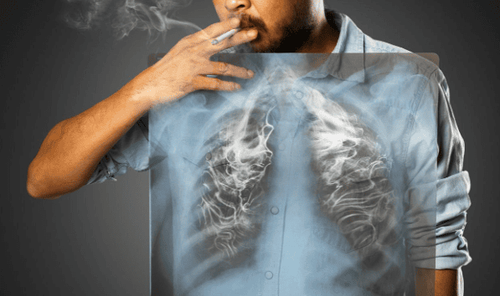
Hút thuốc lá gây ung thư phổi
In fact, if lung cancer is detected early, the chance of prolonging life beyond 5 years or even being curable is very high. However, currently in Vietnam, lung cancer is still the leading cause of death because it is often detected late. Therefore, early detection of lung cancer plays a very important role.
Vinmec International General Hospital is currently providing a Lung Cancer Screening Package that includes in-depth consultation with modern oncologists and radiologists. If you belong to a group with a high risk of lung cancer (family members have cancer, smoker,...), customers should go for regular screening to be screened correctly.
Please dial HOTLINE for more information or register for an appointment HERE. Download MyVinmec app to make appointments faster and to manage your bookings easily.




